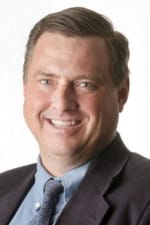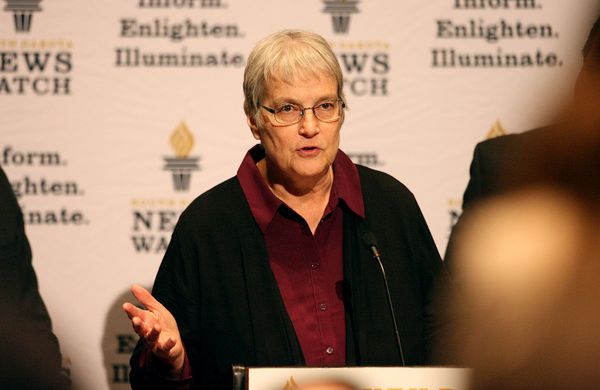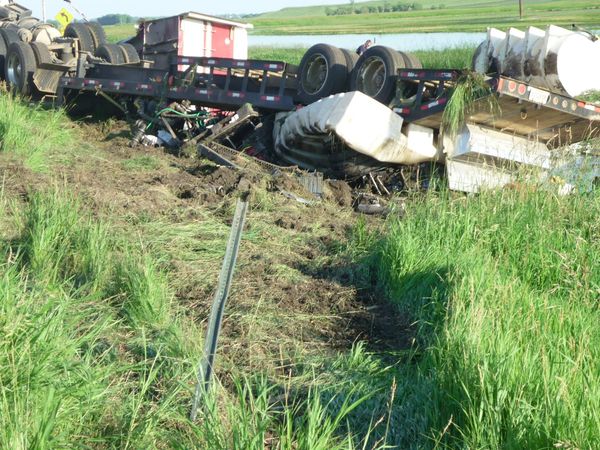Title: Content Director
Contact: 605-937-9398 / bart.pfankuch@sdnewswatch.org
Language spoken: English
Demographic expertise: South Dakota, including the Rapid City area, the Black Hills, rural towns and reservations
Topic expertise: agriculture, state government, education, rural issues, Indigenous people, poverty
Potential conflict of interest: Pfankuch serves on the board of the Oyate Prevention Coalition in Rapid City, which works to prevent substance abuse among Native American youth. He will recuse himself from reporting on the organization.
Biography: Pfankuch (pronounced FAN-cook) is Wisconsin native and former editor of the Rapid City Journal. He has worked for more than 30 years as a reporter and editor at newspapers in Wisconsin, Florida and South Dakota, including as reporter or editor at the Eau Claire Leader-Telegram and Capital Times in Wisconsin, and at the Florida Times-Union and Sarasota Herald-Tribune in Florida. He also is a syndicated writing coach who has presented at newspaper conferences across the country. Pfankuch has won more than four dozen state, regional and national journalism awards, including, while at News Watch, agricultural writer of the year from the North American Agricultural Journalists association in 2020, 2021 and 2023 as well as first-place reporting awards in the Great Plains Journalism Awards sponsored by the Tulsa Press Club and South Dakota NewsMedia Association. Pfankuch lives in Black Hawk.
Professional memberships: Investigative Reporters and Editors, North American Agricultural Journalists, South Dakota NewsMedia First Amendment Committee
Social platforms: X/Twitter; LinkedIn
Archive of work: South Dakota News Watch

Bart Pfankuch
Total 337 Posts
SD journalism community mourns the loss of Maricarrol Kueter, founding editor of South Dakota News Watch
Maricarrol Kueter, a South Dakota native, longtime leader in the state journalism industry and founding executive director and editor of South Dakota News Watch, died on Aug. 10 after a long battle with cancer.
Throughout her fight, Maricarrol, 63, had the strong support of her close family and friends, which
Risky youth behaviors harder to track in SD
South Dakota parents, educators and health officials are facing a four-year gap in data about risky youth behaviors related to drinking and drug use, sexual activity and eating habits.
The lack of information about what young people are actually doing can impair efforts at the state and local levels to
Truck crash sends Roundup and other herbicides into Big Sioux River
As much as 900 gallons of agricultural chemicals – including the primary component of the weed-killer Roundup – flowed into the Big Sioux River after a truck rolled over and spilled its load near Estelline in eastern South Dakota in late June, South Dakota News Watch has confirmed.
The liquid herbicides that
Cheese plant violates pollution limits
LAKE NORDEN, S.D. – The newly expanded Agropur cheese plant in Lake Norden faces a possible fine from state regulators after tests showed the plant’s wastewater that is dumped directly into the Big Sioux River violated state pollution limits in four categories.
Tests of the wastewater released in the
Risk of death on highways rises during July 4 holiday
A new study proves what many drivers and law enforcement officials already believed: that the rate of highway fatalities, including alcohol-related fatalities, rises significantly during the annual Fourth of July holiday across the United States and even more so in South Dakota.
The rate of highway deaths during the Independence
Local prosecutor has legal connection to Aurora Plains Academy
When Lauren Schroeder sought justice for her son who she said was physically abused by employees of Aurora Plains Academy, she grew frustrated that no one would listen.
Schroeder said after an independent investigator with Child’s Voice at Sanford Children’s Hospital in Sioux Falls and an officer with
Governor to enact reform of youth treatment facilities
Gov. Kristi Noem has ordered the state Department of Social Services to enact a series of wide-ranging reforms intended to improve the safety of youths sent to privately run treatment facilities across South Dakota.
The governor’s announcement came in response to an investigative report published June 5 by South


